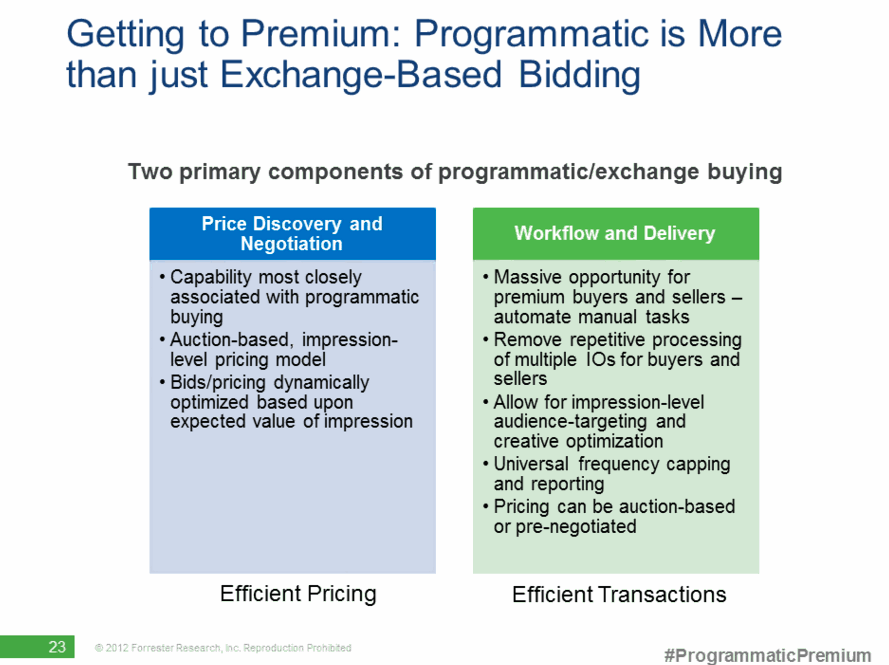Secure your place at the Digiday Media Buying Summit in Nashville, March 2-4

While most publishers and brands remain skeptical of premium programmatic buying, Team Detroit, Ford’s advertising agency, has confidence in it.
Premium programmatic buying has a lot of potential, according to a case study released by Ford last Thursday during a webinar. While programmatic buying is mostly used by publishers to unload remnant inventory, this doesn’t have to be the case, as Ford found out.
Traditionally, Ford spends the majority of its budget on direct-sourced buys on premium and endemic sites. These are important to Ford because of the targeting capabilities. There’s a guaranteed quality in terms of the context of where its ads appear. These ads have proved successful for Ford, but the carmaker noticed it wasn’t seeing the same effectiveness gains as its exchange-traded media buys through digital marketing management platforms.
To drive greater effectiveness from its guaranteed media buys, Ford decided it needed to find a way to tap into data-driven, impression-level decisioning.
Ford ran 15 campaigns across endemic automotive sites. As a control, the brand ran a portion of the media using its traditional approach, which consisted of a series of creative messaging concepts that were dynamically served based on assumptions and past behaviors of consumers. Using the programmatic premium approach, Ford optimized the rest of the media. The brand was able to evaluate the audience data, giving Ford the power of individual impression-level decisioning. Ford was able to deliver the creative with the most relevant make and model, and the messaging also correlated to the consumer’s position in the purchase funnel.
“Given the global nature and scale of our efforts, we make it a priority to continually push for process improvements,” said Erica Bigley, digital marketing manager at Ford.
Ford found that using premium programmatic buying resulted in a 20 percent increase in effectiveness and user engagement.
“Publishers don’t need to do anything dramatically different to take advantage of this opportunity,” said John Gray, director of interactive media at Team Detroit, during the webinar.
More in Media

Digiday+ Research: Dow Jones, Business Insider and other publishers on AI-driven search
This report explores how publishers are navigating search as AI reshapes how people access information and how publishers monetize content.

In Graphic Detail: AI licensing deals, protection measures aren’t slowing web scraping
AI bots are increasingly mining publisher content, with new data showing publishers are losing the traffic battle even as demand grows.

In Graphic Detail: The scale of the challenge facing publishers, politicians eager to damage Google’s adland dominance
Last year was a blowout ad revenue year for Google, despite challenges from several quarters.






